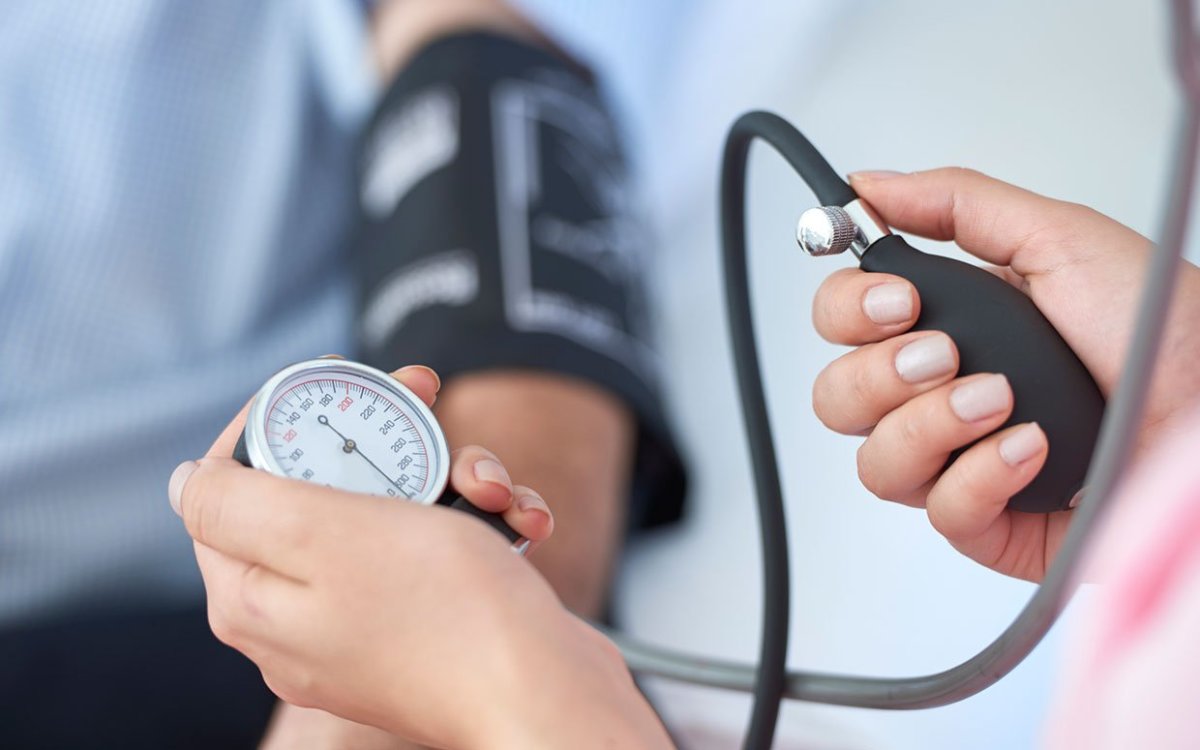Blood pressure is a critical indicator of cardiovascular health, yet many individuals overlook its significance until faced with health complications. Here we’ll review the fundamentals of blood pressure, explore the implications of high and low readings, and provide actionable tips for maintaining optimal blood pressure levels to support a healthy lifestyle.
What is Blood Pressure?
Blood pressure refers to the force exerted by circulating blood against the walls of arteries as the heart pumps blood throughout the body. This force is essential for delivering oxygen and nutrients to tissues and organs, ensuring proper physiological function. Blood pressure is typically measured in millimeters of mercury (mmHg) and is expressed as two numbers: systolic pressure and diastolic pressure.
– Systolic Pressure: The higher number represents the pressure exerted on arterial walls during the heart’s contraction or systole phase.
– Diastolic Pressure: The lower number represents the pressure on arterial walls when the heart is at rest or during the diastole phase between heartbeats.
What are Healthy Blood Pressure Readings?
Healthy blood pressure readings fall within a specific range, indicating optimal cardiovascular function and reduced risk of associated health conditions. According to the American Heart Association (AHA), the following categories outline blood pressure classifications:
– Normal: Systolic pressure less than 120 mmHg and diastolic pressure less than 80 mmHg.
– Elevated: Systolic pressure between 120-129 mmHg and diastolic pressure less than 80 mmHg.
– Hypertension Stage 1: Systolic pressure between 130-139 mmHg or diastolic pressure between 80-89 mmHg.
– Hypertension Stage 2: Systolic pressure 140 mmHg or higher or diastolic pressure 90 mmHg or higher.
– Hypertensive Crisis: Systolic pressure higher than 180 mmHg and/or diastolic pressure higher than 120 mmHg.
Impact of Blood Pressure on Health and Lifestyle:
Maintaining healthy blood pressure levels is essential for preserving overall health and reducing the risk of cardiovascular diseases, including heart attack, stroke, and peripheral artery disease. Lakes Regional Family Medicine Physician Whitney Nelson, DO said, “Chronic hypertension can strain the heart, arteries, and other vital organs, leading to irreversible damage over time. Also, high blood pressure is often asymptomatic, which makes routine monitoring and proactive management strategies even more important.”
In addition to its physiological implications, high blood pressure can significantly impact one’s lifestyle and quality of life. Individuals with uncontrolled hypertension may experience fatigue, dizziness, shortness of breath, and cognitive impairments, limiting their ability to engage in daily activities and enjoy a fulfilling life. Furthermore, hypertension is closely associated with other health conditions, such as diabetes, kidney disease, and sleep apnea, further complicating management and treatment approaches.
Tips for Decreasing Blood Pressure:
According to the Centers for Disease Control and Prevention (CDC), approximately 45% of adults in the United States have hypertension. Alarmingly, only about 24% of adults with hypertension have their condition under control, highlighting the need for improved awareness, prevention, and management strategies. Fortunately, many lifestyle modifications and interventions can help lower blood pressure and mitigate associated health risks. Consider implementing the following strategies into your daily routine:
- Maintain a Healthy Diet
Lakes Regional Healthcare Registered Dietitian Beth Samuelson suggests adopting a diet rich in fruits, vegetables, whole grains, lean proteins, and healthy fats while limiting sodium, saturated fats, and added sugars. The Dietary Approaches to Stop Hypertension (DASH) diet, which emphasizes fruits, vegetables, and low-fat dairy products, has been shown to effectively reduce blood pressure.
- Engage in Regular Physical Activity
Aim for at least 150 minutes of moderate-intensity aerobic exercise or 75 minutes of vigorous-intensity exercise per week, supplemented with muscle-strengthening activities on two or more days per week. Physical activity helps lower blood pressure, improve cardiovascular fitness, and promote overall well-being.
- Maintain a Healthy Weight
Achieve and maintain a healthy body weight through a combination of balanced nutrition, regular exercise, and portion control. Excess body weight, particularly abdominal obesity, is a significant risk factor for hypertension and related complications.
- Limit Alcohol Consumption
Moderate alcohol consumption, defined as up to one drink per day for women and up to two drinks per day for men, may have cardiovascular benefits. However, excessive alcohol consumption can elevate blood pressure and increase the risk of hypertension, heart disease, and stroke.
- Manage Stress
Practice stress-reduction techniques such as deep breathing, meditation, yoga, and progressive muscle relaxation to alleviate tension and promote relaxation. Chronic stress can contribute to elevated blood pressure levels and exacerbate cardiovascular risk factors.
- Monitor Blood Pressure Regularly
Keep track of your blood pressure readings at home, or at a local pharmacy using a reliable blood pressure monitor. Dickinson County Public Health also provides routine blood pressure screenings at the Spirit Lake Senior Center from 11:30 am until 12:00 pm on the fourth Tuesday of every month. Don’t forget to share the results with your healthcare provider. Regular monitoring allows for early detection of hypertension and facilitates timely intervention and management.
Blood pressure is a vital parameter of cardiovascular health, with implications for overall well-being and longevity. By understanding the significance of blood pressure, monitoring readings regularly, and implementing lifestyle modifications to maintain optimal levels, individuals can reduce their risk of hypertension and associated complications. Remember, small changes can have a significant impact on blood pressure and overall health, so prioritize healthy habits and proactive self-care for a healthier, happier life.


